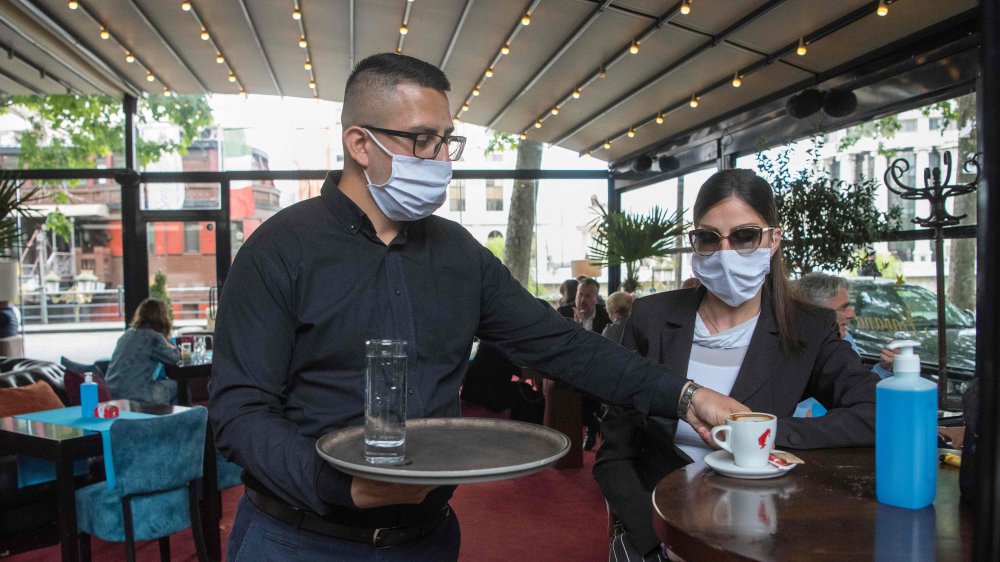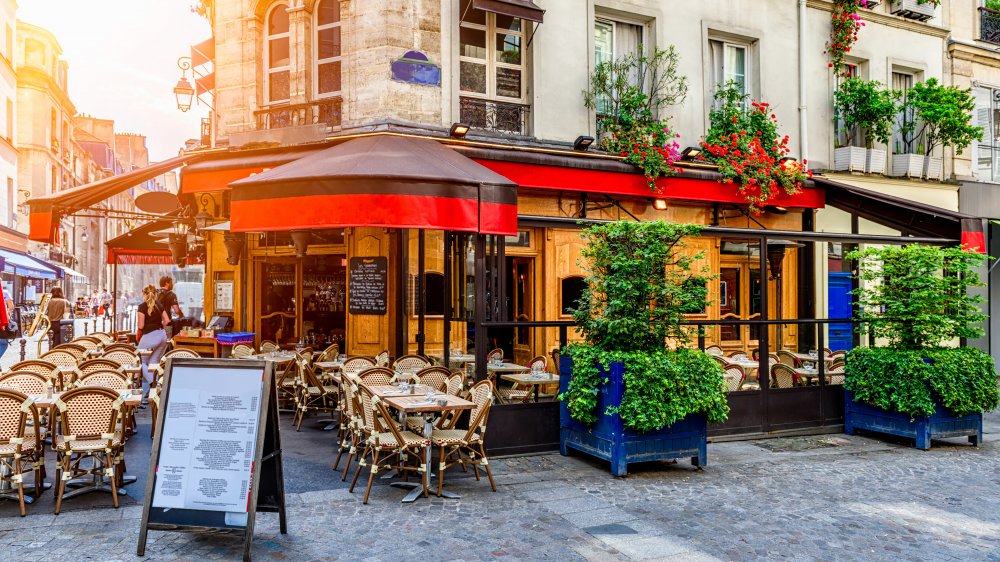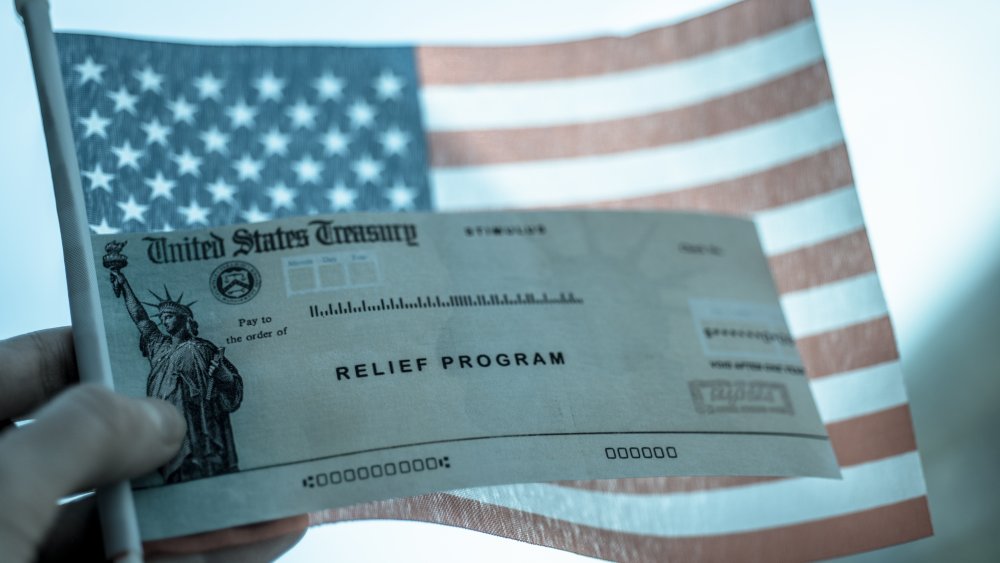The Real Reason Some Think The Restaurant Industry Should Die
Restaurants in the United States are in serious financial trouble due to the COVID-19 pandemic. Stay-at-home orders and restaurant closures in the U.S. cut sales in half in March and April, and two-thirds of employees were laid off, according to the National Restaurant Association. Restaurants are reopening now with limited seating, but it's unclear whether customers will be eager to return as both diners and employees continue to risk exposure to the COVID-19 virus (via Eater).
A $2 trillion aid package passed by Congress and signed by President Donald Trump in late March offered some relief, but it wasn't enough (via Eater). World-famous chef Wolfgang Puck even appealed directly to the president for more help (via FOX6 News). Without it, Puck estimated that 15 percent of independently owned restaurants would close forever. An estimate circulating widely in March suggested a whopping 75 percent of small restaurants won't make it (via The New York Times).
A grassroots effort calling itself Rally for Restaurants, which asked people to support dining establishments by ordering takeout or buying gift cards, reminded us that our favorite restaurants, cafes, and bars are special to us — places where we have a favorite dish or know a friendly server. And despite their own troubles, restaurants have been doing what they can to feed health-care workers at the front lines of the pandemic.
So why does one American chef want to see the industry die?
Wey says the restaurant industry enriches owners and doesn't help everyone else
When Tunde Wey looks at restaurants, he sees a darker side, which he outlines in a self-published essay. The Nigerian-born chef, writer, and activist points to the racial divide between white owners such as Puck, and nonwhite, low-wage workers. High-end restaurants drive up property values, which leads to gentrification. Fast-food establishments are all about "... working poor people, making barely enough to keep them going, [serving] low-nutrition meals to other working poor people." Wey adds, "And all over the spectrum, a white man gets paid off of all of that. Let it die."
Wey's ideas aren't on the extreme fringe of society. He attracted mainstream attention with a pop-up lunch cart in New Orleans that charged white people more than twice what it charged black people, to reflect the income disparity in that city (via The New Yorker). He also hosted a dinner in Nashville where black people ate for free but white people were asked to donate a property deed if they wanted a full meal (via GQ).
To be clear, Wey didn't expect his white dinner guests to donate property. He just wanted to start a conversation about gentrification. Nor does he really want the restaurant industry to die. He just wants it to change. "... [I]t wasn't just an essay about letting things die, it's also about what can rise from the rubble. There is something better on the other side," Wey told The New Yorker.
COVID-19 provides an opportunity for major economic changes
What does that something better look like? Wey's solutions aren't about restaurants. Wey believes their inequities are symptoms of a much broader problem. As outlined in his essay, Wey wants the government to guarantee financial security for everyone, through jobs, trust funds for all babies born in the U.S., and reparations paid to black people and native Americans.
These are radical ideas, but even mainstream publications such as Time see the economic collapse brought on by the pandemic as "the moment to change the world." But if anything is holding Wey back from realizing his goals, it might be his pessimism. "So here we are at the cusp of something different, but where do we go from here," Wey asks in a video he produced about Oakland restaurateur and fellow activist Reem Assil. "Probably nowhere new," Wey answers himself, "because the status quo is too powerful and our economic reality too entrenched to deny."


